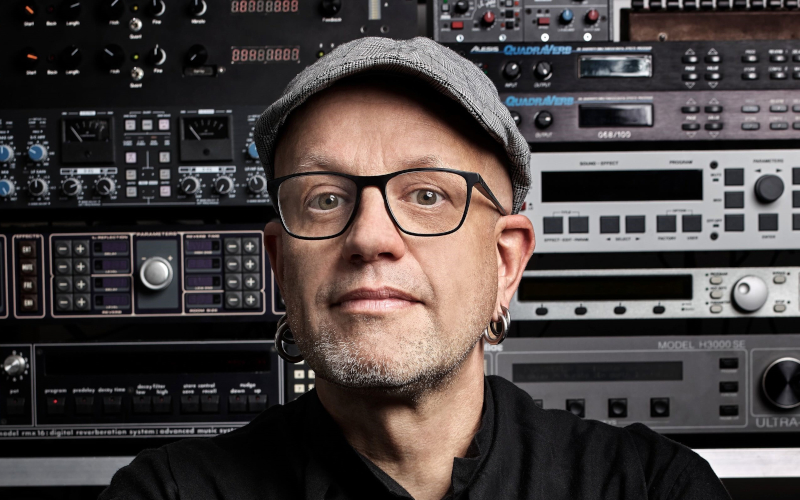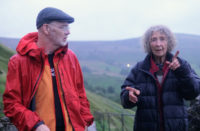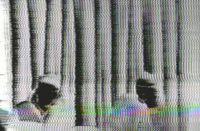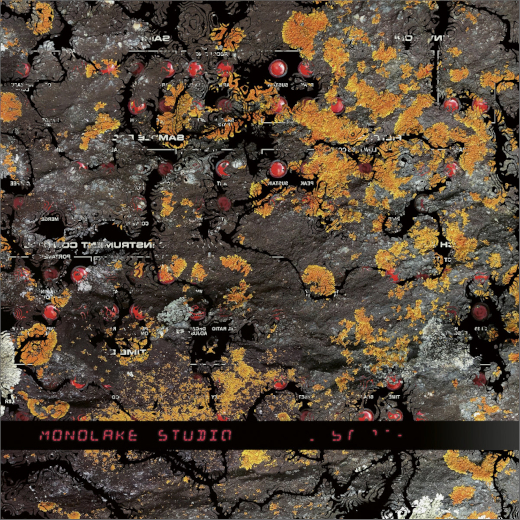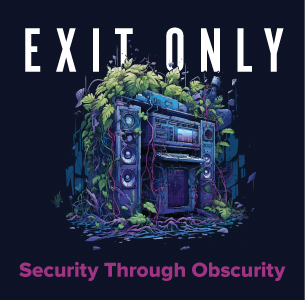Robert Henke, founding and sole member of the legendary Berlin experimental techno group Monolake and co-founder with (former Monolake partner Gerhard Behles and Bernd Roggendorf) of Ableton Live, the groundbreaking software company that took aspects of loop-based electronic music from a semi-obscure corner of music production and turned it into a driving force of musical creation as one of the top tier DAWs (Digital Audio Workstations) in use today.
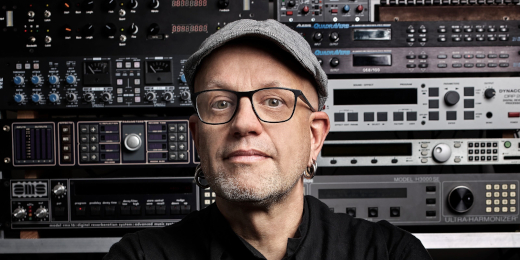
The intersection of seemingly disparate and varying ideas
Before there was the scientist, the engineer, the mathematician, or the biologist, there was the philomath. Simply translated as a “lover of learning.” Philomaths were those who questioned and explored the world around them, seeking understanding through knowledge and experience of events and phenomena. Though many wrote and studied from universities or their homes, some ventured out and explored the lands of their country and further. Without limiting themselves to a single area of study, they instead found that often the intersection of seemingly disparate and varying ideas is the most fascinating of places.
Robert Henke, founding and sole member of the legendary Berlin experimental techno group Monolake and co-founder with (former Monolake partner Gerhard Behles and Bernd Roggendorf) of Ableton Live, the groundbreaking software company that took aspects of loop-based electronic music from a semi-obscure corner of music production and turned it into a driving force of musical creation as one of the top tier DAWs (Digital Audio Workstations) in use today. As Henke himself says “the last thing I expected to become in my life is a high level manager in a big software company I helped to create. And connected with that I am stunned each time I see someone running Live on their laptops. It feels surreal to some extent.”
I recently had the opportunity to realize a lifelong dream and speak with Henke. Of course I jumped at the chance to ask questions of someone I’ve idolized as both a listener and as a musician. His recent Studio album on Imbalance Computer Music was released on September 6, 2024.
Chang Terhune/CRT :: We chatted briefly by email which I don’t expect you to remember because it was about 30 years ago. But when I first heard Hongkong, your debut album, I was obsessed. So obsessed that I liberally stole from it for my own music at the time.
Robert Henke :: I feel honored because my stance on creativity is that we all stand on the shoulders of giants. Because without all the other music that has been made before and with all the genius of the people who built the instruments and so on and so on, we could not do what we do. Creativity is always a process of copying, refining, and changing. It’s a process that involves a society of people, and it doesn’t fall from the sky. If someone is sampling my music and is doing something great with it, I see it as an honor and not as a threat.
That’s a fantastic attitude to have, I think. And I wouldn’t say what I did was good with what I stole from you but it certainly got me through one show.
RH :: If it’s fun, then it’s enough!
I agree. Now despite my excitement to speak with you, I’ll do my best to stay on topic and not make frequent references to my work in our conversation. Because I do realize we’re here so I may talk to you, not you listening to an unknown American babble one, which I’ll be honest, as an American, I would find a terribly unappetizing idea.
RH :: But you Americans, you’re a very diverse part of humanity. So I know Americans that are really, really dear to me. And I have experiences with Americans which are questionable. The full spectrum, I believe.
Yeah, definitely.
RH :: But a lot of people I really admire and whose approach to life, to music, the people I really, really enjoy are Americans.
Excellent.
RH :: We’re on a good start.
We are! So I’ve been a big fan of your music since hearing ‘Hongkong’ when it came out in the metal boxed Basic channel version. Since then it’s been amazing to listen to your music develop while you develop as a musician and artist. And I started using Ableton when it was just the demo and I loved it from the start. But around the same time a friend who worked at Mark of the Unicorn…
RH :: Sorry to interrupt you, but this gives a clear hint about both of our ages, because I don’t think anyone these days would say “Mark of the Unicorn.” We are the tribe who still knows what this means.
(LAUGHS) Yeah. “MOTU” as the kids say. But I was invited to collaborate on a project and this guy gave me a copy of a Digital Performer since he worked at MOTU and wanted to keep it in that format for him to work on. And this isn’t a dis because DP is an incredible DAW even now but back then I was trying to do things with it I’d been doing in Ableton Live on my iBook — yes, it was that long ago. I’d gigged with it even and loved it. But DP at the time ran so slow on the iBook and I was like, “This is terrible! I can’t do anything in Performer like I can do it all in Ableton.” And he got a little offended and was like, “Well, that’s just not fair,” then listed a bunch of technical reasons for this. So I said “Well, son, you’re working at an international music company with a famous DAW that doesn’t work on an iBook, okay? It ain’t my fault!” (BOTH LAUGH) It all worked out but since then it’s been amazing to see Live grow, and Ableton grow and evolve into what it is. I don’t know how much I know your involvement in it is these days but it’s probably pretty still intensive.
RH :: Actually, a lot more than the previous years.
Oh, interesting.
RH :: I moved myself out a little bit of the company maybe 10 years ago or something like that because I felt I’m not needed. I also found it important to develop some artistic things. But the last five years or so, I came back a lot, and especially the last two years, I’m working more than ever.
Oh, really?
RH :: Yeah, it’s interesting because it’s challenging times also. But challenging times always have both these aspects to it. Thirty years ago everyone tried to make something with very limited resources and now we are all fighting with finding our artistic self in this flood of tools and toys. A negative aspect is that people have less money to spend. People are much more concerned about things, the overall music industry is suffering and we are part of that. But on the other side, there are a lot of really interesting developments going on and I’m surrounded by a team of people who are really motivated. Therefore, there is a strong reward to be involved because the world is changing and the world of music is changing so we need to find answers to what we can do with AI. We need to find answers to also how a younger generation of people who just started making music have a different expectation about how software works. You could see this as a threat, but also you can see it as a chance.
Yeah, it’s interesting what you said about the younger generation. I interviewed Mal (Stephen Malinger, Cabaret Voltaire founding member, solo artist, DJ and professor), who teaches at Brighton University in the UK. He was telling me how fascinating it is to see his students approach making music, listening to it or even learning about music because their approach was so different than he and his peers. I mean even though we’re about 13 years apart in age, Mal and I both heard new music on the radio, or word of mouth, or by magazines, or going to the shops, then hearing something and saying, “Oh, what’s this?!” Mal made me realize how different it is with newer generations. Now I have a 25 year old and how she and her boyfriend listen to music and absorb it very differently from how my friends and I did. Their relationship to technology is so very different and developing it with their needs and uses in mind is a new challenge. Which for you and Ableton sounds both daunting but also an amazing opportunity.
RH :: Yes, it is indeed.
You mentioned AI just before. I’m fascinated by it but also very concerned about how it’s used. I don’t think you can be involved with this much gear and electronics without being fascinated by new and developing technology. But if you’re smart, you’ll also have some wariness about the intended uses. It’s been interesting to speak with artists about their views on it which has influenced my own. Because on one hand, the incredible opportunities AI promises in the small package of a laptop are tantalizing. But at the same time there’s major issues of how these machines learn and what they’re taught on. For instance there’s an article that showed “no zero shots” which meant the machines were unable to create anything without the content they hadn’t been trained on. I find this troubling from a copyright and creative standpoint. Yet you can’t ignore AI because so much money is being pumped into it. Also I will say my issues with it are not just the impacts on creatives vis a vis getting work to live but the environmental impact of AI as the energy needed to power these machines is monstrous.
RH :: Of course. There’s not enough solar or geothermal, I think, to power it.
Right! And from what I can see it’s largely being promoted by people with large sums of money who probably don’t have any artistic inclinations but appear to be eager to sell a tool for companies to not pay humans for their work.
RH :: Oh, of course. Yeah.






